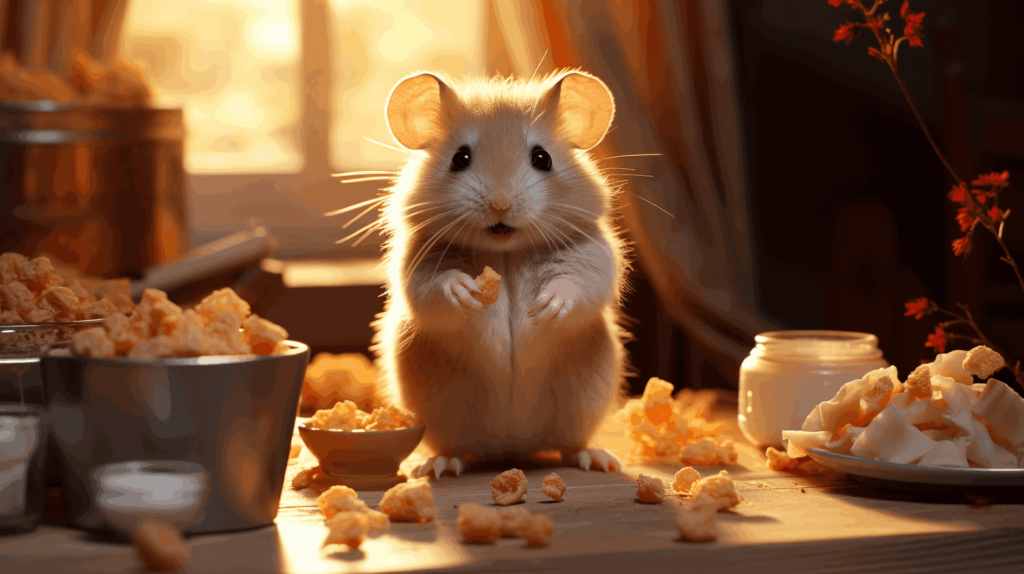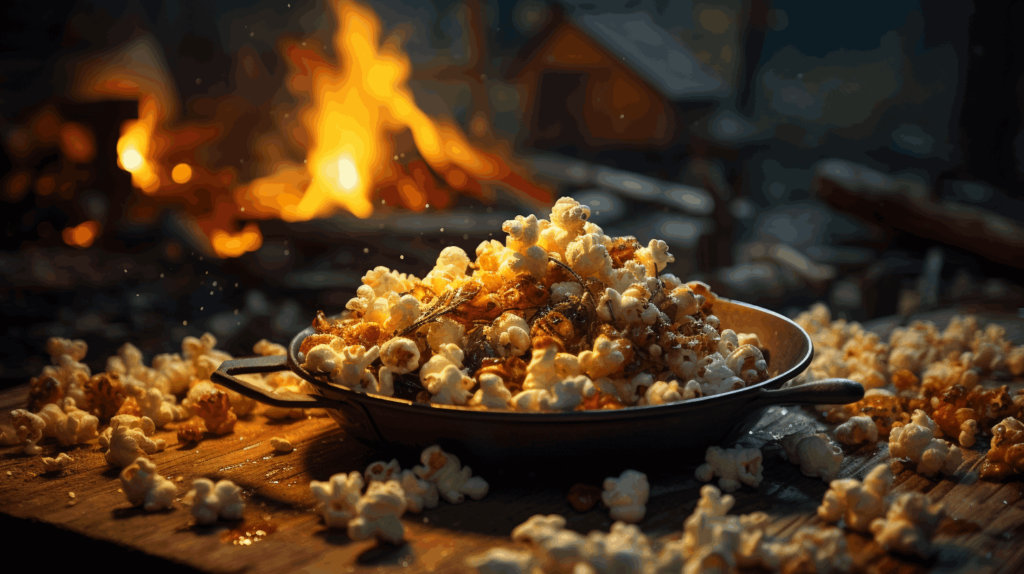In avian nutrition, the question arises: can birds partake in the delight of popcorn?
As responsible caretakers, it is imperative to explore the potential impact of this popular snack on our feathered friends.
By delving into the nutritional value of popcorn, understanding necessary precautions, and considering the effects of salt, sugar, and fats, we can ensure the well-being of our avian companions.
Join us as we navigate the fascinating world of avian nutrition and determine if popcorn can be a healthy and enjoyable treat for birds.
Key Takeaways
- Organic air-popped popcorn is a healthy treat for birds.
- Salted popcorn or caramel popcorn should be avoided.
- Popcorn should be given to birds in moderation and should not be the basis of their diet.
- Plain, unsalted popcorn is the safest option for birds.
The Safety of Popcorn for Birds
In light of the current discussion topic on the safety of popcorn for birds, it is crucial to emphasize the importance of offering plain, unsalted popcorn as a treat rather than a staple food for avian species.
While popcorn can provide some nutritional benefits for birds, such as carbohydrates, fiber, vitamins, and minerals, it should not be the basis of their diet.
Popcorn with added salt, butter, or other seasonings should be avoided, as excessive salt can lead to kidney failure and other health issues. Furthermore, the high fat content in flavored popcorn can contribute to obesity in domestic birds.
Monitoring birds’ behavior and health after feeding them popcorn and providing bird-friendly snack alternatives, such as sunflower seeds, suet cakes, and fresh fruits, is essential to ensure a balanced diet for our feathered friends.
The Nutritional Benefits of Popcorn for Avian Health
Although popcorn should not be the basis of their diet, it can provide nutritional benefits such as carbohydrates, fiber, vitamins, and minerals for avian health.
Popcorn is a good source of carbohydrates, essential for providing birds energy. The fiber content in popcorn aids in digestion and helps regulate the digestive system.
Additionally, popcorn is low in fat and contains small amounts of protein, making it a suitable bird snack option. It is also rich in vitamins and minerals like vitamin B complex, magnesium, and phosphorus, essential for overall avian health.
Furthermore, popcorn is a good source of antioxidants, which boost the immune system. However, it is essential to avoid popcorn with added salt, butter, or other seasonings, as excessive salt can lead to kidney failure in birds.
Plain, unsalted popcorn is the safest option to offer birds in moderation as a treat rather than a staple food.
Precautions in Feeding Popcorn to Birds
Three critical precautions to consider when feeding popcorn to birds are:
- Avoid popcorn with added salt or seasonings: Popcorn with added salt or herbs can harm birds. Excessive salt intake can lead to kidney failure and even death. It is best to offer plain, unsalted popcorn to birds.
- Ensuring the popcorn is fresh and mold-free: Moldy popcorn can contain toxins that harm a bird’s health. It is crucial to check the quality of the popcorn before offering it to birds. Only fresh and mold-free popcorn should be given to birds.
- Offering popcorn as a treat rather than a staple food: While popcorn can be a tasty snack for birds, it should be given in moderation and not as a primary source of nutrition. Providing a balanced diet that includes a variety of foods is essential for birds’ overall well-being.
The Impact of Salt, Sugar, and Fats on Bird Diets
Salt, sugar, and fats can have significant consequences on the dietary health of birds. Their consumption in excess can lead to various health issues and compromise their overall well-being.
Excessive salt can cause kidney failure and even death in birds.
Similarly, sugar can contribute to diabetes, heart disease, and cancer. It can also affect a bird’s mental well-being by causing depression, hyperactivity, and stress.
While some bird species can benefit from fats, domestic birds should be cautious with fat-rich diets to avoid obesity and associated health risks.
Bird owners must be mindful of the snacks they provide their feathered friends. Opting for healthier alternatives such as sunflower seeds, suet cakes, fresh fruits, mealworms, and cracked corn can help maintain optimal health.
Bird-Friendly Snack Alternatives to Popcorn
There are numerous bird-friendly snack alternatives to popcorn, such as sunflower seeds, suet cakes, fresh fruits, mealworms, and cracked corn.
These alternatives provide a variety of nutrients and flavors that birds can enjoy while promoting their overall health. Sunflower seeds are famous and high in healthy fats, protein, and vitamins. Suet cakes are another great option, as they are high in calories and provide birds with essential energy during colder months.
Fresh fruits, such as berries and apples, offer a sweet and juicy treat, while mealworms are a great source of protein. Cracked corn is also a common choice, providing birds with carbohydrates and fiber.
Creating a Bird-Friendly Environment to Attract Feathered Friends
To create a bird-friendly environment and attract feathered friends, gardeners can take several steps:
- Plant a variety of native trees and shrubs. These plants provide birds with natural food sources, nesting sites, and protection from predators.
- Install bird feeders. Bird feeders can supplement birds’ diets, especially when food is scarce. It’s essential to choose suitable bird feeders and fill them with appropriate seeds or suet cakes that cater to the specific dietary needs of different bird species.
- Provide a water source. Birds need water for drinking and bathing. Installing a birdbath or shallow pond can attract birds and provide them with a much-needed water source.
Creating a bird-friendly habitat also involves other important considerations:
- Minimize the use of pesticides. Pesticides can be harmful to birds and their food sources. Using organic gardening methods and avoiding chemical pesticides can help create a safe bird environment.
- Maintain a clean and safe environment. Regularly clean bird feeders and water sources to prevent the spread of disease. Removing debris and providing sheltered areas can also help birds feel safe and secure.
Conclusion
In conclusion, while popcorn can be a delightful treat for birds, it is essential to take precautions to ensure their safety. The nutritional benefits of popcorn for avian health are limited, and the impact of salt, sugar, and fats on bird diets should be carefully considered.
Exploring bird-friendly snack alternatives and creating a bird-friendly environment to attract and nourish our feathered friends is recommended. We can provide our beloved birds with a healthy and enjoyable diet by making informed choices.


